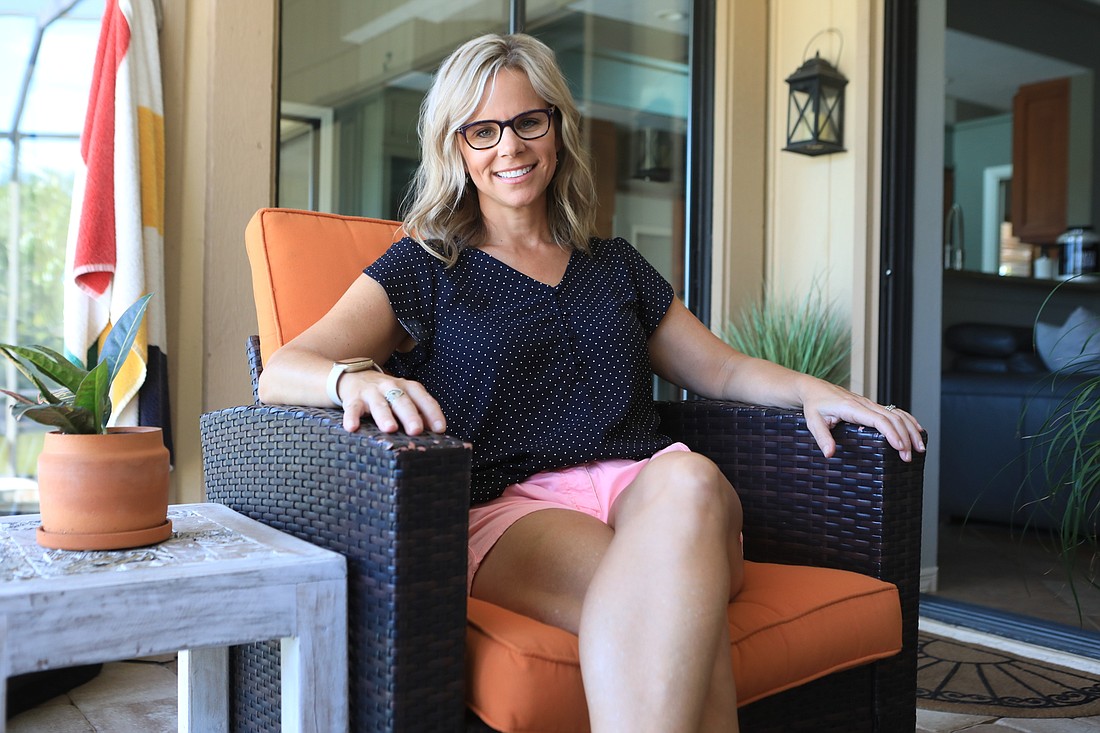- November 22, 2024
-
-
Loading

Loading

Kristi Hoskinson is a motivated woman.
The vice president of the Sarasota Chamber of Commerce’s CareerEdge initiative has spent years leading workplaces and prides herself on outlining and executing her goals.
Much of that success comes with help from coffee. Hoskinson wakes up every morning at 5, shuffles to her kitchen and pours herself a cup to start the day. It’s familiar, and it works.
Hoskinson and her husband contracted COVID-19 in August of 2021, and quickly worked through the virus over a couple of days. Life went on as normal. Until it didn’t.
Near the end of the year — Dec. 3 exactly — Hoskinson woke up, poured herself a cup of coffee and was overwhelmed with the smell of what seemed to be sewage.
“I had a sip while figuring out what this disgusting smell was,” “The taste of coffee which I’ve been drinking since seventh grade, now tasted disgusting. Disgusting honestly doesn’t begin to describe the taste.”
It wasn't a one-time deal. Hoskinson now suffers from parosmia, a disorder that has distorted nearly all of her smells and tastes. Coffee, shampoo, strawberries, almost anything she can smell or taste — all share a putrid stench.
“Panic just kicked in,” Hoskinson said. “I didn’t eat or drink much that (first) day."
She believes it to be a latent COVID-19 reaction that attacks the nerve cells that registers smells. There’s a possibility those pathways can heal, but there’s no way to know for sure. It's enough to bring anyone low, and Hoskinson was no different.
“I realized this is my life now, and I’m going to suffer.”
It’s been months now, and Hoskinson has had to rearrange parts of her life to make it bearable.
She’s changed her diet and habits to downplay the smell as much as she’s able. She’s started to have a handle on her condition, and has started to wonder what she can do for others suffering from the same ailment. Hoskinson is hoping to start a conversation and support network with local people living with parosmia.
“I thought if there’s anything I can do with my coaching background locally, how can we support each other? Hoskinson said.
She was told by her doctor it was simply too early to know exactly how post-COVID-19 symptoms affected the body and when they would cease. The lack of definite conclusions or a long-term plan added to her panic.
“I’m a balanced individual, my passion is health and well-being,” Hoskinson said. “I still felt myself spiraling down into depression.”
The situation brought back trauma from Hoskinson’s past. Hoskinson worked through an eating disorder and anorexia decades ago, and has since approached food in a healthy and more loving way. The idea of having to restrict her diet in a way she used to, was hard to accept.
She now has a list of what she calls smell-agnostic foods — white rice, pasta, quinoa, spinach, tomatoes — that she uses to make up her new diet. Hoskinson will occasionally experiment with new foods to see if she can stomach them, and the list has slowly grown. To her delight, some foods that were unbearable at the start of her experience have become less challenging, pointing to some kind of improvement.
Her schedule has changed as well. Where she once met with clients and coworkers for drinks and lunch, she now arranges appointments outdoors where she has a simple glass of water.
Her husband Ken has helped. After a few failed attempts at cooking different meals, her husband has now joined in on eating the same food as his wife. It’s a gesture that gets Hoskinson emotional even now.
Hoskinson joined a sizable Facebook group for people who have parosmia after a case of COVID-19.
She soon found comfort in seeing her own anxieties echoed by nearly 47,000 other members. The group also helped her feel in control of the condition, where she could learn coping mechanisms and foods that worked with her new tastes.
“It’s a strange way to say it but when I know when people are feeling the same way I do, I don’t feel like a wimp,” Hoskinson said. “It eases some of the edge knowing others are going through it too. I’ve never been in a support group.”
It’s made her want to reach out to others in Sarasota who are going through what she is. Hoskinson recently visited her specialized doctor who told her they’ve seen an uptick in people with parosmia, and it gave her the idea to find a way to help.
Hoskinson deeply wants to communicate with others with parosmia in person rather than digitally. She’s thought about a monthly check-in group and a way to stay informed with others.
She feels she’s coping now better than she did at the start, and feels it’s a matter of keeping perspective. She’s seen people in her support group heal from parosmia and find some level of their old lives again, and she appreciates having that hope for herself.
In the meantime, she has work to do.
“I have air in my lungs, I’m vertical and can use my body,” Hoskinson said. “I can use my talents and gifts at work. I can still be Kristi, just a different version of Kristi.”